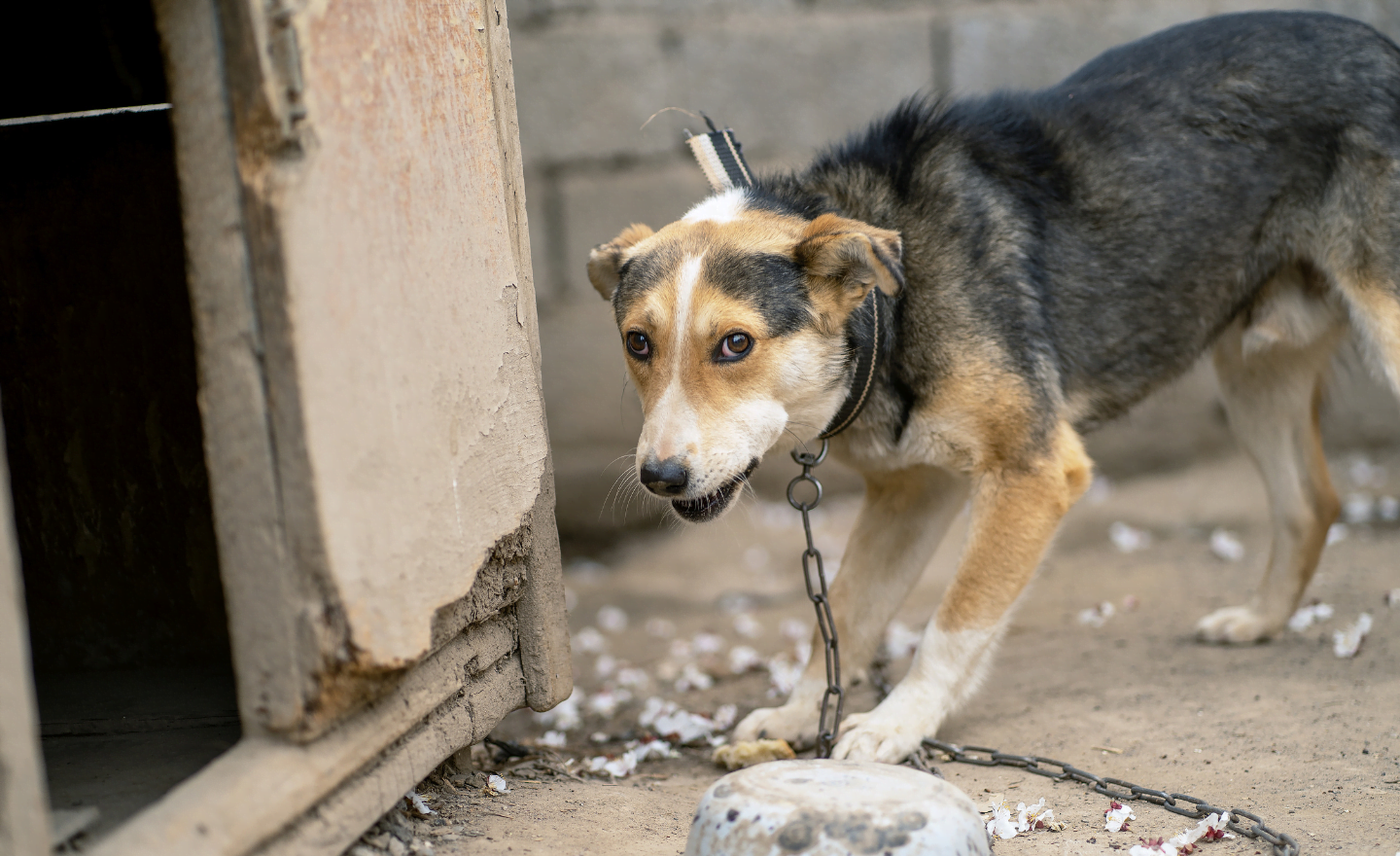Presently, in Quebec, there are thousands of dogs who spend the majority of their life chained outside, even though this condition is detrimental to their physical and psychological health.
Dog tethering consists in tying a dog to a fixed object (doghouse, pole or other) for prolonged periods of time to restrain their movements. Dogs are very social animals who deserve to be treated like members of the family – not to spend their life on a chain.
An animal wellbeing issue
Dogs who are tethered have a higher risk of injuring themselves – including by strangulation – by getting tangled up in their chain. They are also more vulnerable to attacks from other animals. As these dogs are often kept isolated, they are also more at risk of being neglected, hence lacking adequate food, water, shelter or veterinarian care. They face extreme meteorological temperatures and are often infested by internal and external parasites such as intestinal worms and fleas.
Tethered dogs are isolated, robbed of the opportunity to socialise, to play, to exercise or to express their natural behaviours; they develop serious boredom and frustration issues that can eventually lead to psychological distress. It’s been known for a long time that dogs are social animals whose wellbeing depends on contact with humans or other members of their species. This also applies to animals chained in a group, such as sled dogs, because proper socialisation with other dogs is based on physical contact and play – which is impossible when they’re tied up. The deficiencies resulting from the lack of social contact can transform a dog, who’s naturally friendly and docile, into an anxious, depressive or hyperactive animal.
A public security threat
Tethering dogs also presents risks regarding public security. Given that they are unable to escape, dogs who are chained permanently or for prolonged periods of time are more susceptible to becoming aggressive towards what they perceive to be a threat. Being constantly limited in their movements stimulates their territorial nature, which can lead to aggressivity. Also, given that tethered dogs receive little to no social contact, they tend to develop behavioral issues that can translate into attacks. Studies show that permanently tethered dogs are 2.8 times more likely to bite than other dogs1.

The current situation in Quebec
At the present moment, the Animal Welfare and Safety Act and the Regulation respecting the safety and welfare of cats and dogs allow the permanent tethering of dogs if certain requirements regarding the restraint, the access to shelter and the immediate environment of the animal are met. Even the new Règlement sur le bien-être et la sécurité des animaux domestiques de compagnie et des équidés, adopted on August 10, 2022 that will come into effect on February 10, 2024, continues to allow this practice by merely requiring an hour-long exercise break every day. However, over 35,000 Quebecers said they were against the permanent tethering of dogs on the Montreal SPCA website in the event of a 2015 campaign on the subject.
The situation elsewhere
The permanent tethering of dogs is prohibited in Austria, Germany, Switzerland and some twenty American States such as California, Delaware, Nevada, Oregon, Rhode Island and Texas. The practice is also prohibited in over 120 municipalities in the U.S. and in Canada, including in several Quebec municipalities. The provinces of New-Brunswick and Nova Scotia also recognized the dangers of the practice – both for the public and the dogs – and adopted laws to ban it.






